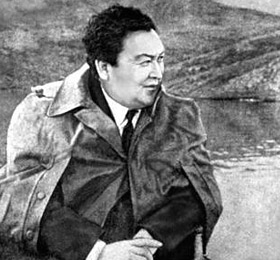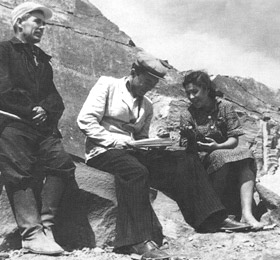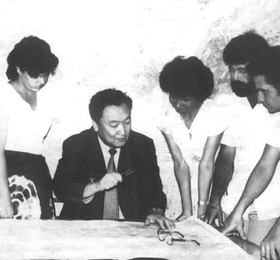Danat Issa
Having successfully passed the Research Internships competition, a senior student from Taraz won a grant from Shakhmardan Yessenov Foundation. Danat Issa spent three summer months of 2017 in the laboratory of the Astrophysics Department at Princeton University.
Danat, now you are 21, when have you realized that you want to study astrophysics?
Since childhood I had interest in space and all my science projects in elementary school were devoted to space phenomena. I even tried to build a magnifying tube of a two loop, like Galileo. In high school I became interested in preparing for the Olympiads in physics. The puzzle was finally solved when I entered the Nazarbayev University.
How difficult was the Fund’s competition for you?
I applied for the internship program for the first time when I was a second year student. Then I did not win, but gained invaluable experience as an applicant and a participant of the second round. After my failure I’ve thought a lot about what I wanted from further studies and how to achieve this. In other words that failure helped me to set priorities. So when I applied at the third course, I was better prepared and the contest passed smoothly for me.
What were you doing at the internship?
How and why there is explosion of supernova are the questions that still remain open. One thing is clear: neutrino particles play an enormous role in this process. Today, scientists are able to calculate how neutrinos interact with matter of the star. My goal for the summer was to learn how to apply Monte Carlo method (named after the casino in Monaco) for these calculations. With a group of students of the Nazarbayev University we are working to develop computer code, debugging and running of which I was doing in America. Princeton University needed the results of our research, while we sought for their computing power, so the cooperation was mutually beneficial.
What have you achieved for those three months in Princeton?
I learned the programming language Fortran, the basics of work with a Cactus (that is a set of software tools), read dozens of scientific articles. I had the opportunity to work on computers that are several tens of times more powerful than a typical desktop. And the Astrophysics Department at Princeton put me in a summer research program for undergraduate students. So I got the opportunity to listen to lectures of leading researchers in space observation and other related fields.
What else, except for science, were you interested during the internship?
Princeton is located somewhere between New York and Philadelphia, so we paid visits to both cities. I saw the places where American history was made. And what panoramas and views that we all know from Hollywood movies are there?! For two weeks I lived in a rented apartment outside campus with students from different countries and then moved to the dormitory. Every evening we spoke on different topics with the students and professors, and you know it was very informative. I liked communicating with them — they are all motivated young scientists. And now we still keep in touch.
What’s next, Danat?
In agreement with my American supervisor Prof. Burrows I continue to work on the project but remotely. Our ultimate goal is to create a tool to simulate the physics of the supernova explosion. But it will take approximately several years. In our University a high performance computing cluster is planned to be opened soon, there I will be able to apply my skills that I gained during the internships in America. And our University would continue the research without assistance from abroad. I hope that this project will be my diploma as well as a strong argument in favor of accepting me to doctoral program in a foreign University.
11.12.17, Stories
Seen by: 833





